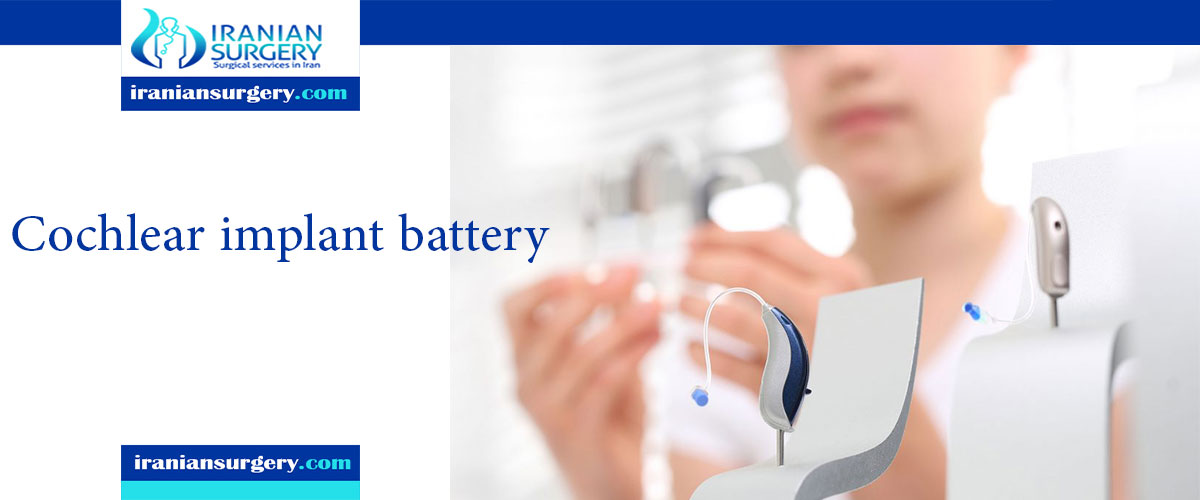Cochlear implant battery

Cochlear Implant Batteries
How long do Cochlear Implant batteries last?
An average Cochlear Implant rechargeable battery lasts up to 19 hours (for small batteries) and up to 40 hours for bigger batteries per charge. Disposable batteries have a battery life of at least 48 hours. The lifespan of a rechargeable battery is somewhere around 365 to 500 cycles. The battery life is mostly determined by its capacity, brand, usage, and its mapping.
Read more about : What is cochlear implant meaning?
Read more about : Deep Brain Stimulation for Parkinson’s disease
About Iranian surgery
Iranian surgery is an online medical tourism platform where you can find the best ENT Surgeons in Iran. The price of Cochlear implant Surgery in Iran is very affordable compared to other countries. So, if you are looking for the cost Cochlear implant Surgery in Iran, you can contact us and get free consultation from Iranian surgery.

Factors that play a role in the battery life of your Cochlear Implant
. How thick is the skin that covers your implant?
. Type and size (capacity) of the battery. Most processor brands offer 2 sizes of rechargeable batteries (regular and compact) and a disposable option.
. Do you use streaming features often? Just like your phone, streaming can drain your batteries.
. The mapping of your CI (programming the input to the electrodes on the array) determines the amount of power that is needed to adjust the perfect loudness level.
How long does it take to charge a cochlear implant battery?
When a battery is completely empty, it takes approximately four hours to recharge completely. It is always wise to recharge the battery fully before using to get the best of it. The lifespan of a rechargeable battery is somewhere around 365 to 500 normal cycles. So if you charge your battery every night, you need to change them at least once a year and a half.
Read more about : Heart Pacemaker Surgery
Tips to extend your Cochlear Implant battery life
. Always use the included wall adapter and cable.
. Charge the battery for 4 hours before its first use.
. Disconnect the rechargeable battery when not in use.
Parts of a Cochlear Implant
All cochlear implants, regardless of manufacturer, consist of two general components:
. Internal device: The internal portion of the implant consists of two parts: the receiver/stimulator and the intracochlear electrode array.
. External hardware: The external portion consists of three parts: a microphone, a speech processor, and a transmitting coil.
How a Cochlear Implant Works
. Sound is picked up by the microphone, where it is sent down a cord to the speech processor.
. The speech processor filters the incoming acoustic signal into separate frequency bands, and then converts this information into digital form.
. The digitized signal is sent back up the cord to the transmitting coil, which is held in place by a magnet.
. The coil transmits the digitized information across the skin to the internal receiver/stimulator.
. The internal receiver/stimulator decodes the incoming signal and sends information in each frequency band to a different electrode within the cochlea. (The internal receiver/stimulator also contains a magnet to which the external coil sticks.)
. High-frequency information is sent to electrodes in the basal end of the cochlea, and low-frequency information is sent to electrodes in the apical end of the cochlea.
. Electrical stimulation from the intracochlear electrodes takes the place of damaged cochlear structures or hair cell - nerve synapses.
. The auditory nerve picks up the electrical signals from the electrodes and relays that information to the brain where it is interpreted as sound.
Read more about : IVF

